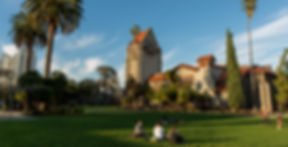

Will Leineweber
Postdoctoral fellow, Stanford University

About
Will Leineweber received his B.S. in Bioengineering from Santa Clara University. He then worked at the Wyss Institute at Harvard University developing organ-on-a-chip devices before completing his Ph.D. in Bioengineering from UC San Diego. He is currently a postdoctoral fellow at Stanford University in the lab of Dr. Emma Lundberg. His current research is in the field of spatial biology, with an emphasis on identifying the proteomic states of cancers that promote metastasis.
Abstract
Identifying the Proteomic Cell States Underlying Heterogeneous Cell Migration Behavior
Cell migration is a fundamental behavior for numerous physiological processes, but also plays a key role in diseases like metastatic cancer. Despite advances in genomic and transcriptomic approaches, it remains difficult to predict cell migration behaviors due to the complex machinery that regulates cell migration at the protein and microenvironmental levels. This work aims to characterize the underlying molecular states between different migration outcomes by leveraging live-cell tracking and end-point spatial proteomics. Tracking of U2OS osteosarcoma cells expressing the FUCCI cell cycle reporter constructs reveals the dynamics between cell proliferation and migration. A 19-marker panel for cell migration proteins was developed and deployed to reveal the cell states underlying cell migration. Results from this novel integration of technologies can begin to answer important biological questions, such as 1) how cells balance the energetically demanding processes of proliferation and migration and 2) what combination of proteins produce the most and least migratory cells. This approach may provide the basis for future biomedical devices that characterize the functional states of tumor biopsies.